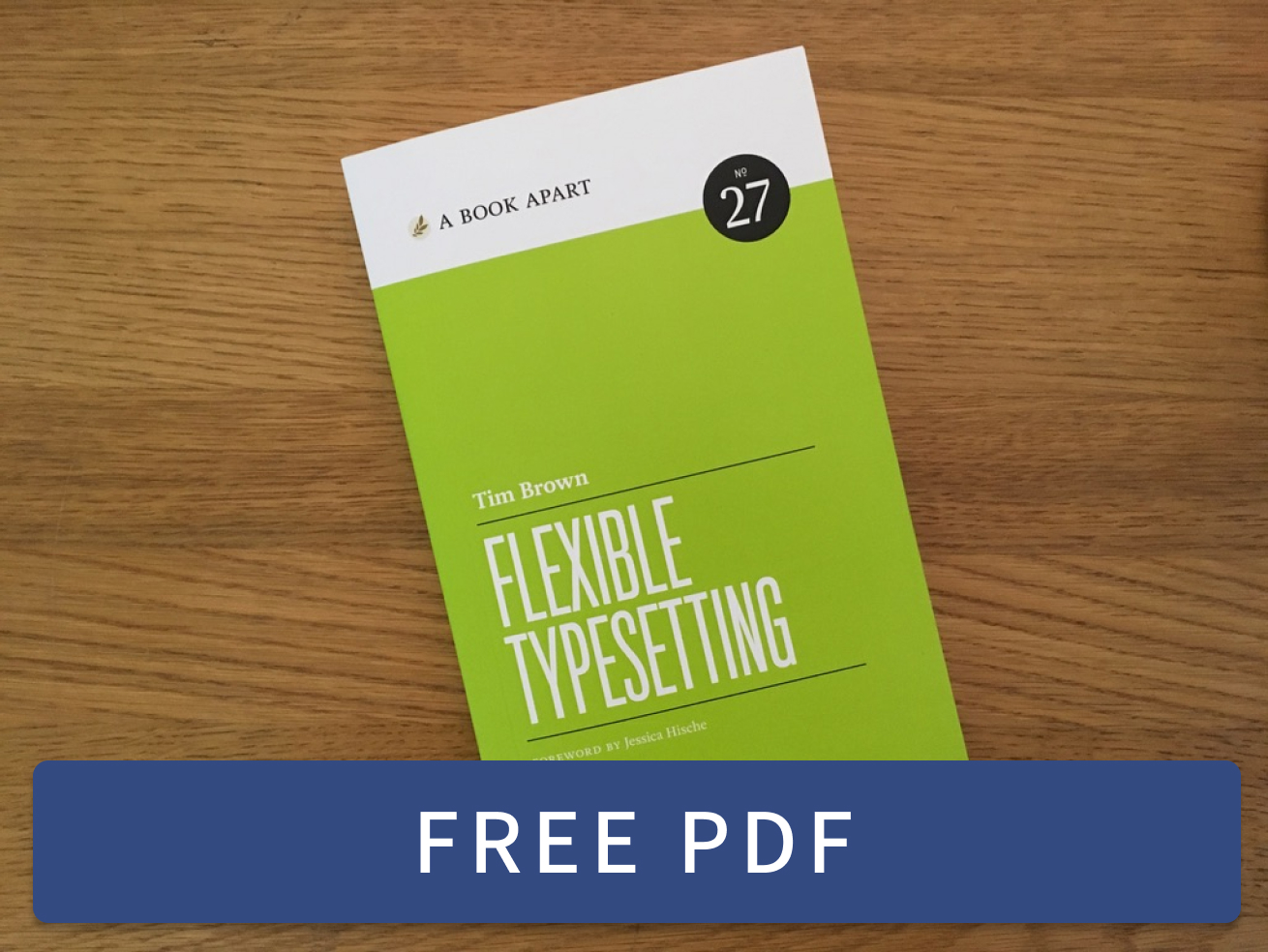RSS Club
Mon, 12 Feb 2018
Oh, I like this RSS Club idea very much. What a bunch of nerds we are. Thanks to Dave for the fun idea! I don't have much to say right now, but I wanted to get this set up properly.
Got an iPad a week or two ago, and sorta bummed about my site setup. I use Jekyll and GitHub, but I don't have any kind of deployment in place — I just FTP up the compiled Jekyll. But I can't compile Jekyll on the iPad. I've considered setting up deployment from GitHub, like Pages with a custom domain, but then I'd either have to commit all the squirrelly, weird, hidden stuff on my site, or break all the links. That stuff is clearly important.
Blogroll, episode two
Sun, 11 Feb 2018
Adding a couple more sites to the blogroll:
Mandy Brown's A Working Library. Mandy and I used to work together at Typekit. She is incredibly smart, grounded in good values, and she works hard to dismantle systematic disadvantages in society. Her writing introduced me to Octavia Butler's Earthseed books, which I thought were excellent. I admire Mandy's leadership and determination, and I love reading her blog.
Chris Coyier is the mastermind of several beloved web development institutions that I visit daily: CodePen, CSS-Tricks, Shop Talk Show. He writes this personal site as well. Chris is a kind and thoughtful person, hustling to make working on the web easier for other people. It's fun to hear about what he's up to.
Adobe and NASA
Sat, 7 Oct 2017
My colleague Sairus Patel recently attended an internal Adobe conference for principal scientists, and I loved this anecdote he returned with:
If you want to change the world by influencing people’s creativity, you join Adobe. Just like in the 60’s if you wanted to put a man on the moon, you joined NASA.
Blogroll
Sat, 22 Jul 2017
Started a blogroll today on the front page. I plan to add two or three at a time. Here's a start:
Donny Truong: Donny and I used to work together at Vassar College, in the web design group. He's maintained a personal website for years, with subjects ranging from parenting, to web development, to jazz, to typography. Reading his updates is a nice way to keep in touch. I've learned a lot from Donny over the years.
Jason Kottke: My fingers make this twitching motion a few times each day: cmd-T, k, o, return. My browser autocompletes kottke.org, one of the oldest blogs on the web. I have been a reader for longer than I can remember. Jason and his occasional guests always come up with interesting things. Today, long overdue, I became a member.
Resilient Web Design
Sat, 22 Jul 2017
A little while ago, while I mowed the lawn, I listened to Jeremy Keith’s excellent Resilient Web Design. Jeremy often tells good stories about how the web came to be, and here he has distilled those into a great one, citing specific people’s contributions to the web’s existence and complexion, and using history as a means of laying out fundamental principles that ensure the web’s continued success — which is to say, human achievement.
On collaboration over time:
The history of human civilisation is a tale of cumulative effort. Each generation builds upon the work of their forebears. Sometimes the work takes a backward step. Sometimes we wander down dead ends. But we struggle on.
On control:
Relinquishing control does not mean relinquishing quality. Quite the opposite. In acknowledging the many unknowns involved in designing for the web, designers can craft in a resilient flexible way that is true to the medium.
On progressive enhancement:
This layered approach to the web allows the same content to be served up to a wide variety of people. But this doesn’t mean that everyone gets the same experience.
On the future:
I wish I could predict the future. The only thing that I can predict for sure is that things are going to change. I don’t know what kind of devices people will be using on the web. I don’t know what kind of software people will be using on the web. The future, like the web, is unknown.
Galapagos by Kurt Vonnegut. What caught my attention most in this book was the narrative structure. The narrator has witnessed an entire timeline of events, but describes them in a patchwork, here and there, before things begin to fit together, hinting at this or that and providing clarity later. Along the way, there are thoughtful and humorous reflections on humanity.
I can see why reviewers liken Vonnegut to Mark Twain. They’re both humorous authors, although this novel is the only Vonnegut I’ve read, so I don’t know that he’s always like this. But it reminded me of this from Twain’s How to Tell a Story:
The humorous story may be spun out to great length, and may wander around as much as it pleases, and arrive nowhere in particular.
Sat, 15 Jul 2017
About
Hello, I’m Tim Brown. I’m a designer and toolmaker with 15 years of product leadership experience.
My special interest is typography, a fancy word that means using fonts. I’m Head of Typography at Adobe, where I work on design tools and help people stay sharp.
I live and work in New York State’s Hudson Valley with my wife and college sweetheart Eileen, our three daughters, and our dogs.
Please feel welcome to email and connect on social.
 Flexible Typesetting
Flexible Typesetting Practicing Typography Basics
Practicing Typography Basics